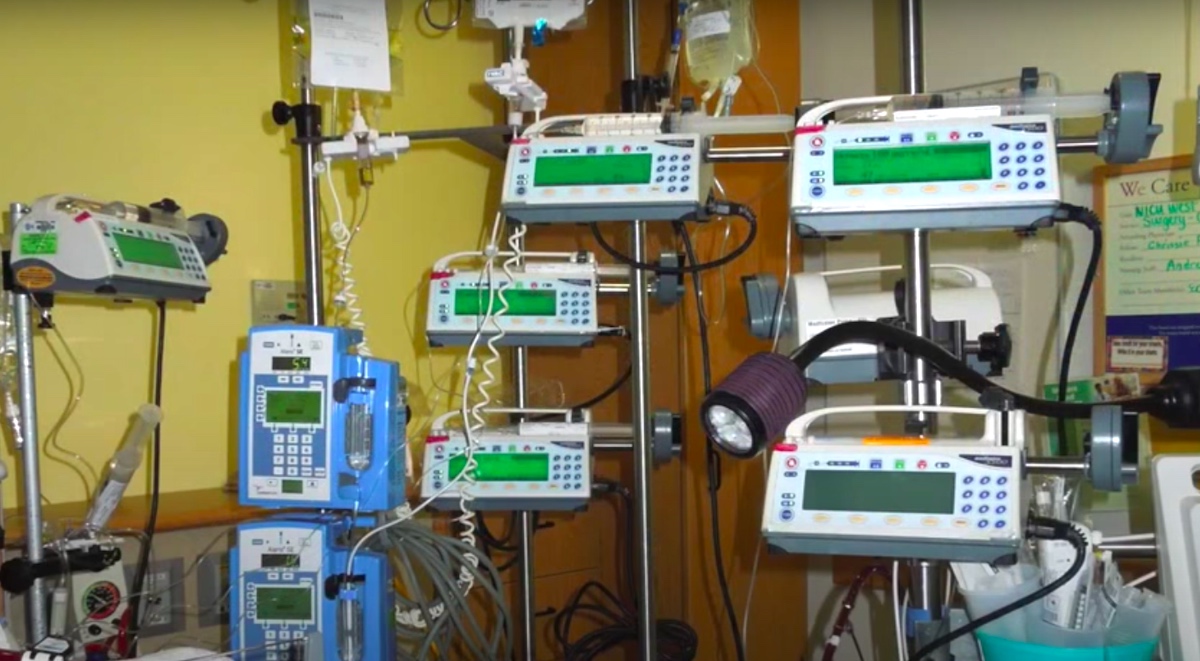Beyond nurses, doctors and others on healthcare’s frontlines, there’s another essential worker you’ve probably never heard of.
In 2015, Money Magazine defined “The 5 Best Jobs You’ve Never Heard Of,” described as high-paying, under-the-radar careers that are growing faster than the national average. The second job listed was medical equipment repairer, which is more readily referred to as biomedical equipment technician (BMET) within the industry of healthcare technology management.
What was true in 2015 is still true today. Biomedical equipment technology continues to be a great but unrecognized career option with excellent opportunities for employment and advancement. Let’s take a closer look at some of the reasons why it makes sense to explore the field of BMET:
It’s a technical job that contributes to the well being of others.
BMETs work in medical centers, hospitals and large clinics, or for medical equipment manufacturers. They do not provide direct patient care, but they are a key part of the healthcare team in hospitals, ensuring that emerging medical technologies are in top form so that nurses, doctors and other direct care providers can give the best possible patient care. BMETs carry out repairs as well as periodic performance testing and preventive maintenance of advanced medical equipment used to save lives, including patient monitors, defibrillators, infusion pumps and ventilators. BMETs also work closely with hospital IT departments to help address networking issues with medical equipment.
It’s a meaningful career with numerous job opportunities.
There is a strong need for entry-level BMETs. These employment opportunities are driven by two factors: growth and replacement. The Occupational Outlook Handbook projects a 7% growth over the next 10 years. The job outlook indicates a numeric change in employment of 3,900 positions from 2020 to 2030. And as we know, a significant portion of the current workforce will be reaching retirement age in the next five to 10 years: The annual survey of current BMETs, conducted by 24×7 Magazine, reported that 40% of survey respondents were 55 or older.
“A ton of knowledge and experience will go out the door when these professionals retire, one survey respondent lamented, while simultaneously highlighting the general ‘lack of awareness’ about the field,” per the magazine.
The field offers good pay, benefits and opportunities for advancement.
According to the Occupational Outlook Handbook, median pay for BMETs in 2020 is $51,610 per year. Benefits are also typically good and they often include tuition allotments or reimbursements. In terms of hiring requirements for BMETs, because of the pressing need to bring in new employees, many employers are looking beyond the traditional requirement for an associate degree in biomedical equipment technology.
It’s possible to start working with a certificate and continue on for the degree.
Community College of Philadelphia is currently the only institution in the Philadelphia region that offers a BMET program. It was developed with the full support of its advisory board members who are predominately BMET professionals, and taught by professionals actively working in the field. The College has a stackable credentials program with two levels of proficiency certificates, and the credits earned count toward an associate degree in biomedical equipment technology.
The Level 1 certificate gives students the basic skills and knowledge needed to enter the field as an entry-level BMET. The Level 2 certificate provides students with greater depth of understanding to enable them to address more complex troubleshooting problems and networking issues. Both certificates contain a minimum 200-hour internship component and can be completed in one year. We encourage our BMET students to also earn the degree since some employers still require it, and earning it provides a broader range of opportunities and the best chance for advancement.
Our seventh cohort of BMET students just began the program in September of this year, and they know it’s a field full of opportunity.

This guest post is a part of Tech + Health Month of Technical.ly's editorial calendar. This month’s theme is underwritten by the Chesapeake Digital Health Exchange. This story was independently reported and not reviewed by CDHX before publication.
Before you go...
Please consider supporting Technical.ly to keep our independent journalism strong. Unlike most business-focused media outlets, we don’t have a paywall. Instead, we count on your personal and organizational support.
3 ways to support our work:- Contribute to the Journalism Fund. Charitable giving ensures our information remains free and accessible for residents to discover workforce programs and entrepreneurship pathways. This includes philanthropic grants and individual tax-deductible donations from readers like you.
- Use our Preferred Partners. Our directory of vetted providers offers high-quality recommendations for services our readers need, and each referral supports our journalism.
- Use our services. If you need entrepreneurs and tech leaders to buy your services, are seeking technologists to hire or want more professionals to know about your ecosystem, Technical.ly has the biggest and most engaged audience in the mid-Atlantic. We help companies tell their stories and answer big questions to meet and serve our community.
Join our growing Slack community
Join 5,000 tech professionals and entrepreneurs in our community Slack today!






